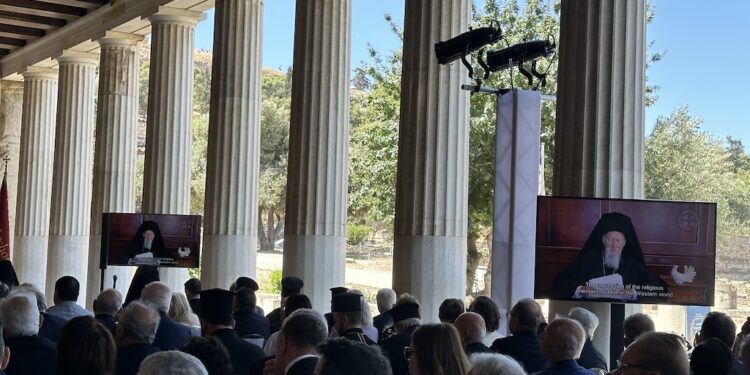In his address at the opening of the 4th International Conference of the Archons of the Ecumenical Patriarchate, Ecumenical Patriarch Bartholomew emphasized the importance of Orthodoxy offering a positive challenge to the contemporary world. He called for a God-inspired perspective on life and freedom, especially in a time where values are being redefined. The Patriarch highlighted the need to prioritize the sanctity of the human person and the integrity of creation in today’s society.
He noted that the focus of the Conference on the human right of religious freedom is essential, as it is linked to the transcendent dimension that is necessary for establishing absolute respect for the human person. Bartholomew acknowledged that in the current global landscape, there is significant resistance to the universal claim of human rights, particularly from non-Western cultures and religions.
The Patriarch emphasized the role of religions in upholding and advocating for human rights. He pointed out that the attitude of religions towards human rights, their adoption of humanitarian demands, and their collective efforts in ensuring respect for these rights are crucial. Bartholomew also highlighted the importance of religions accepting the universal scope of human rights, emphasizing that these rights belong to all of humanity.
In the context of Orthodoxy, Bartholomew acknowledged that there is no uniform stance on human rights. He mentioned that there is often a defensive attitude towards human rights within the Orthodox Church, with some viewing them as a threat to traditional values. However, he argued that rejecting human rights outright is a misunderstanding of both human rights and Orthodox ethics. He stressed that embracing human rights is essential for preserving the humanitarian tradition of Orthodoxy. The Church demonstrates its Truth when it upholds human rights rather than conforming to nationalistic ideologies. Orthodoxy is called to offer a positive challenge to the modern world, emphasizing the sanctity of the human person and the integrity of creation. The Church opposes violence and isolation, promoting service and unity. Human rights pose a transition from traditional values to formed values, with religious freedom being a key aspect. The right to change religion is a point of contention, but it signifies a paradigm shift in human rights. Religions are urged to embrace universal values and uphold human rights in their entirety. Human rights are crucial for a more humane world, and their future depends on the stance of religions towards them. The Church’s witness is inherently political, advocating for human dignity, justice, and peace. Through dialogue and cooperation, religions can contribute to common actions for the betterment of society. The argument that Church intervention in human affairs blurs the line between religion and politics lacks theological justification and suggests a diminishing understanding of the importance of historical events. Thank you for your attention!
Source link

